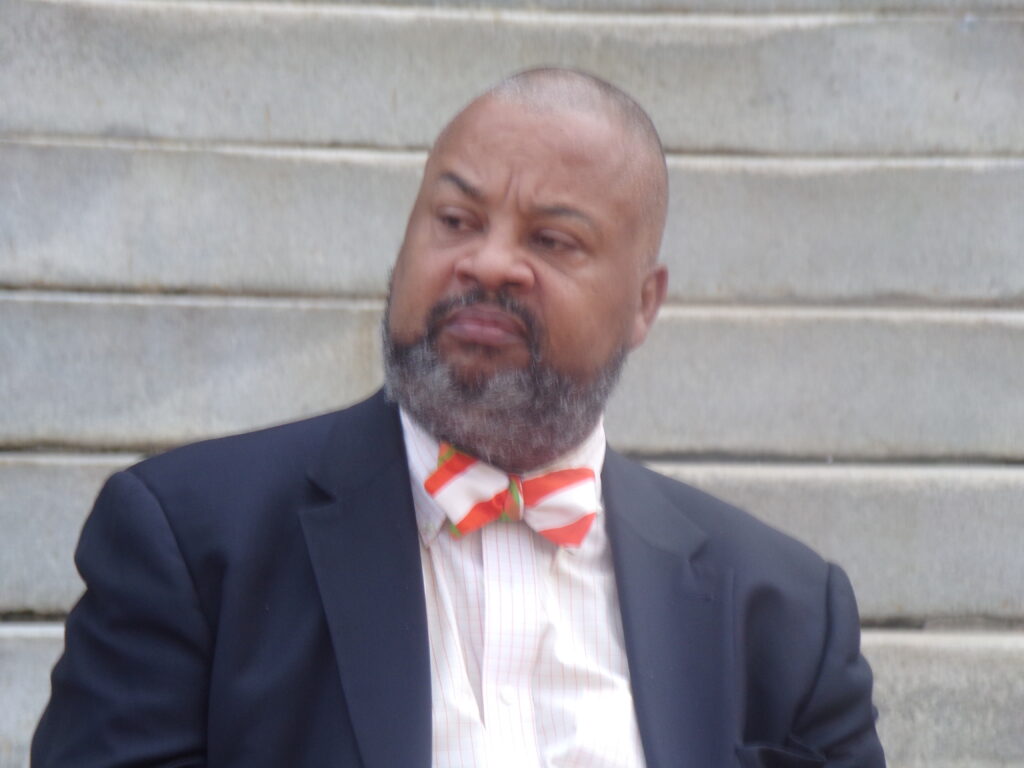Payne Finds a Unique Chance with Historic Bills to Unite Moderates and Progressives

As the country hurtles toward the 2022 midterms, the Administration of President Joe Biden faces a critical juncture next week when the United States of Representatives considers two bills at the core of Biden's agenda: a $1.2 trillion infrastructure spending bill and a $3.5 trillion reconciliation, which includes considerable social safety net spending.
Democrats in the House face internal worry about progressives in the caucus withholding support from the infrastructure bill if moderates fail to back the reconciliation, a divide that goes to the heart of the party, but one that U.S. Rep, Donald Payne (D-10) says he believes he and his colleagues can bridge.
"I'm optimistic," said Payne, who backs both bills.
"They both have merit," the Newark-based congressman noted. "Our country has been through a traumatic time with the last president, and the country needs to heal in a positive direction. The president [Biden] gives us that opportunity."
While he continues to back both bills at this time, Payne said he knows they will undergo scrutiny, negotiation and alteration prior to next week's voting session.
"I naturally was with the overall $3.5 trillion bill, and I'm clear it might not be that much as we carve away from it," the congressman told InsiderNJ. "I am concerned to see what gets cut out. I think all the areas we are trying to fund need attention, including child care, and the child tax credit. I am also naturally in support of the infrastructure bill, when you consider the alarming fact that there are 10,000 bridges and railroads in our country that should not now be in use, which this bill addresses. I chair the subcommittee on railroads, pipelines, and hazardous materials, and I find this information unsettling, to say the least.
"It's frightening," Payne added. "Think about it. Those are the impassable ones that we shouldn't be using."
The congressman said the bill will address several significant action areas in his district, including the ongoing lack of public transportation access to the region's core.t
"Absolutely one of my main focuses is the Gateway Tunnel project," said Payne, who said money is included in the infrastructure bill to get it done. "As one of the first Democrats invited to the White House when Joe Biden became president, I made it clear to him that we need the Gateway Tunnel. I told Transportation Secretary [Pete] Buttigieg the same thing. When they see coming, they know it's the Gateway guy again.
"Believe me, I am on board working with everyone with the end goal of getting both bills passed," Payne added.
He said he is mildly frustrated by the often artificial division between moderate and progressive within the Democratic caucus.
"What we should worry about is getting to the final end, making sure everyone feels comfortable with these bills, not whether they satisfy the designation of progressive or moderate. Candidly, I'm not sure which one I am. I'm a Democrat. I see the need on both sides, and I sympathize with both views in this package. But to give you an example, I just voted against the defense bill. Is that a progressive stance? I think so but I tend to try to balance things out, and the question then becomes, 'Who gets to label me?' People who don't agree with me? When I'm on the floor, Republicans call me a leftist pro-commie, and back in the district, I'm supposedly a no-good has-been Democrat."
When it comes down to it, he sees both bills as necessary, from a practical, pragmatic point of view.
He also refuses to panic amid reports about the caucus colliding internally.
"I've been around a little while, and with anything this large, I'm not surprised they're taking their time," said Payne. "I think we're in a unique position, with the House, the Senate and the presidency to get things done. The American Rescue Plan, for example, provides millions to state and local governments to help come out of this [the ravages of the pandemic] and to do things for citizens, and I am proud to have had something to do with that."
Payne along with former U.S. Rep. Lacy Clay of Missouri successfully made the case to broaden the rescue plan's application to include cities with populations smaller than 500,000 people, mostly to ensure direct aid to Newark and Jersey City, he said. The recalculation produced $186 million for Newark and $146 million for Jersey City.





